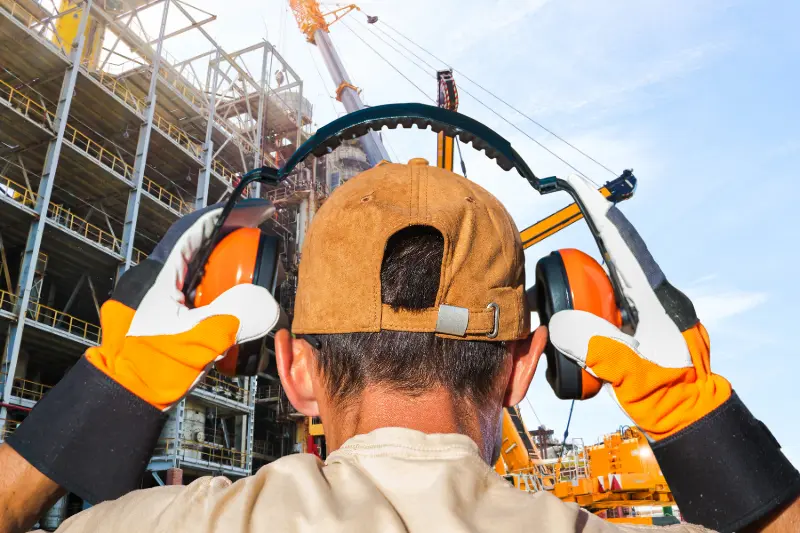
INDUSTRIAL HEARING SCREENINGS

Construction worker protecting his ears
Industrial hearing screenings
These are essential tools used to monitor and protect the hearing health of individuals exposed to occupational noise hazards. Typically conducted in workplace settings by trained professionals, these screenings involve quick and non-invasive tests to assess employees' hearing sensitivity and identify any signs of potential hearing loss. By regularly conducting industrial hearing screenings, employers can proactively detect hearing impairments early on, allowing for timely intervention and the implementation of appropriate hearing conservation measures. These screenings not only promote workplace safety but also help preserve employees' long-term auditory health and well-being in noisy work environments.
Video: Hearing loss on the job
Learn more about how to protect your ears on our blog
Hearing damage is a real and unfortunate effect of long-term exposure to loud noise. Noise is a hazard of industrial workers and workers of any occupation who are repeatedly exposed to loud noises. This may include individuals who work in factories, construction sites, mill workers, musicians, and airport personnel.
Noise-induced hearing loss is fully preventable when the right precautions are taken from the start. Regular hearing tests to evaluate any early signs of hearing loss, as well as everyday preventative measures such as the use of ear plugs go a long way toward preventing permanent hearing loss.
Industrial hearing test requirements
Organizations such as the Occupational Safety and Health Administration (OSHA) have enacted requirements and procedures for hearing conservation in an effort to standardize hearing safety practices and reduce the incidence of preventable hearing damage. Some states, as well as the Department of Defense, have their own guidelines.
In most cases, OSHA requires that employees who are exposed to a time weighted average (TWA) of 85 dBA be part of a hearing conservation program which includes hearing testing and employee training. Industrial manufacturers are also required to report evaluation results. A summary of OSHA’s hearing conservation program can be found on their website here: https://www.osha.gov/Publications/osha3074.pdf
Industrial hearing conservation programs
Some companies choose to meet these requirements independently. However, most companies choose to contract with a hearing conservation company to conduct hearing evaluations, keep records and make sure they comply with all safety standards and meet safety goals.
Failure to test and/or report noise exposure levels and the impact on employees can cost companies thousands in legal fees and federal fines. Hiring a professional or company to make sure they are in complete compliance is worth it in the long run.
Hearing conservation companies usually have mobile hearing evaluation units available to travel and perform on-site hearing evaluation services. They are typically staffed by a hearing specialist and/or an Occupational Hearing Conservationist (OHC, also known as an Industrial Audiometric Technician).
OHC Technicians are certified by the Council of Accreditation in Occupational Hearing Conservation (CAOHC) and are supervised by a hearing specialist or physician. They are trained to conduct hearing conservation procedures including pure-tone air conduction hearing testing. Their training is very specific to occupational settings only and is not applicable in non-occupational practices.
Education and referrals
OHC Technicians are trained to detect possible indications of early hearing loss as well as provide training for employees. If a possible hearing problem is detected, the technician will refer the employee for further tests by a hearing specialist.
Basic education and training for employees may include how to properly fit and wear hearing protection devices. Some employees may require more sophisticated and customized hearing protection. Environmental modifications or administrative controls implemented by the employer may also be in order.
How It Works
Step One
Book your appointment by clicking the link you see here on the page and selecting a time on the schedule that works best for you.
Step Two
After you book your appointment time, we will have you come into our office where we will take you through your customized tinnitus treatment program.
Step Three
After your treatment, you will be on your way to a better quality of life!

